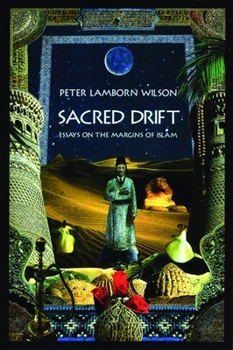Sacred Drift: Essays on the Margins of Islam
Peter Lamborn Wilson proposes a set of heresies, a culture of resistance, that dispels the false image of Islam as monolithic, puritan, and two-dimensional. Here is the story of the African-American noble Drew Ali, the founder of "Black Islam" in this country, and of the violent end of his struggle for "love, truth, peace, freedom, and justice." Another essay deals with Satan and "Satanism" in Esoteric Islam; and another offers a scathing critique of "Authority" and sexual misery in modern Puritanist Islam. "The Anti-caliph" evokes a hot mix of Ibn Arabi's tantric mysticism and the revolutionary teachings of the "Assassins." The title essay, "Sacred Drift," roves through the history and poetics of Sufi travel, from Ibn Khaldun to Rimbaud in Abyssinia to the Situationists. A "Romantic" view of Islam is taken to radical extremes; the exotic may not be "True," but it's certainly a relief from academic propaganda and the obscene banality of simulation.
"This is my brand of Islam: insurrectionary, elegant, dangerous, suffused with light - a search for poetic facts, a donation from and to the tradition of spiritual anarchy." --Hakim Bey
"Peter Lamborn Wilson, in his book Sacred Drift: Essays on the Margins of Islam, offers an interesting window into the early evolution of Islamic ideas among African Americans." --Abbas Milani, New Republic
Peter Lamborn Wilson lives in New York and works for Semiotext(e) magazine, Pacifica Radio, and the Jack Kerouac School of Disembodied Poetics. A long decade in the Orient (1968-1981) inspires his writing, including The Drunken Universe: An Anthology of Persian Sufi Poetry and Scandal: Essays in Islamic Heresy. He also investigates Celtic psychoactive plants in his book Ploughing the Clouds which is also published by City Lights Publishers.





